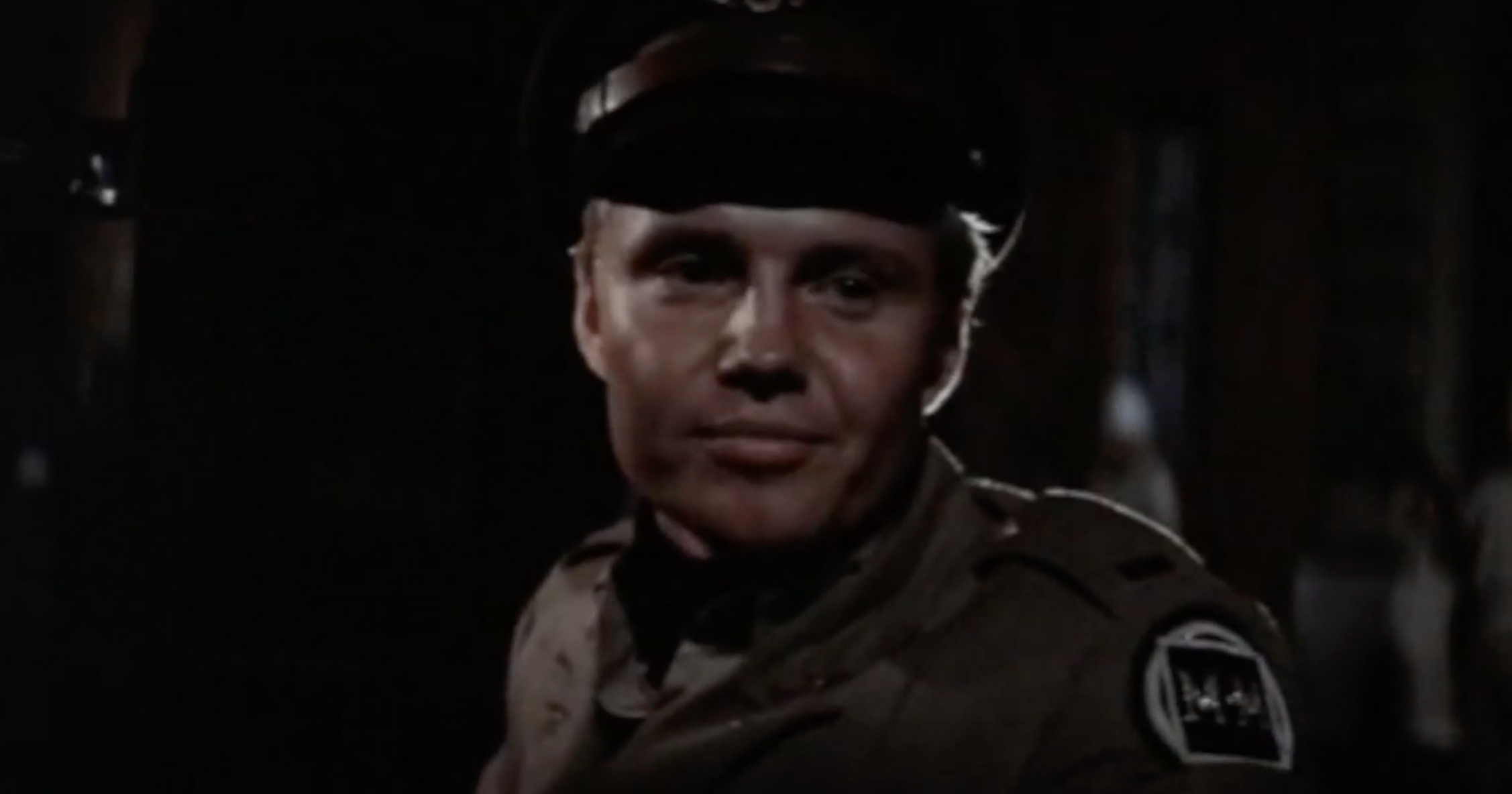The concluding line in this Catch 22 conversation between Lt. Milo Minderbinder (Jon Voight) and Cpt. Yossarian (Alan Arkin) was not written by original novel author Joseph Heller but Buck Henry. Heller reportedly approved.
Minderbinder: “Nately died a wealthy man, Yossarian. He had over sixty shares in the syndicate.”
Yossarian: “What difference does that make? He’s dead.”
Minderbinder: “Then his family will get it.”
Yossarian: “He didn’t have time to have a family.”
Minderbinder: “Then his parents will get it.”
Yossarian: “They don’t need it, they’re rich.”
Minderbinder: (beat) “Then they’ll understand.”
From a 2006 essay on Catch 22 by Todd Alcott: “Voight delivers that last line with chilling calm and precision, and suddenly the whole movie comes into focus.
“This war, and this story, are all about the capitalist imperative, and Nately died not for his country but for that imperative. His life was worth a certain amount of money, and when the amount of money available rose to a certain amount, it was no longer necessary to keep Nately alive. And if Nately’s parents are wealthy, they’ll have already made those calculations in their heads many times over in their lives.
*Turns out my memory is faulty. The exchange is not in the book. It was written by Buck Henry.
“Anyway, the movie is about more than just that, but that’s the moment when it stops becoming hijinx and starts meaning something. In some ways, the movie (and the book) are about a state of mind, a way of looking at things, and the fact that it’s set on an island in the Mediterranean during World War II is incidental. It’s a story about the way of the world coming into focus for a young man, and in this case the young man was Joseph Heller during World War II, much as it was for Norman Mailer and Kurt Vonnegut and James Jones and Saul Bellow and numerous other Great American Novelists of that generation.
“After the movie, I asked my wife what happened to great novels, why there was a whole generation of WWII novelists who really had a handle on these things, and why later generations do not. Because it shouldn’t matter that there’s a world war going on, the same things should matter to and electrify each generation in turn.
“And my wife said ‘Well, for the ’80s it was Bright Lights, Big City.’ And I nodded and said, ‘and for the 90s it was Fight Club.’ And then I bemoaned the diminishing importance of the novel.
“Well, Hollywood got one of them right.”

